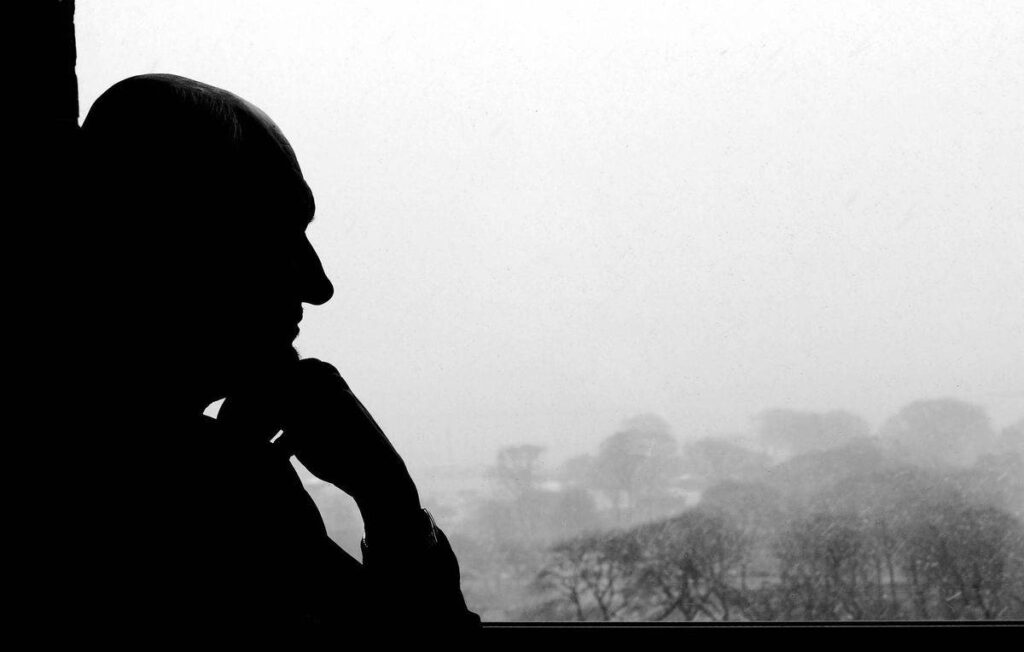Mental health issues can plague all ages. But as we age, new mental health issues can rear their head, and existing conditions can get worse. More than 20 percent of adults over 60 experience mental and neurological disorders such as dementia and depression. A surprising 25 percent of self-harm-related deaths occur among adults over 60. While diverse ages experience stressors in their daily lives that can contribute to worsened mental health, older adults are subject to a myriad of unique issues. Problems associated with aging like hearing loss, loss of mobility, and chronic pain can contribute to mental health issues like depression and suicide.
While we experience plenty of gains as we age, we also experience more loss at a higher rate as our lives go on. Older people are more subject to bereavement, leading to mental health slumps caused by isolation and loneliness.
Unfortunately, the stigma attached to mental health in older adults may cause them to refrain from seeking help, leaving many conditions undiagnosed and even unnoticed by the people experiencing the issues.
Depression
Depression is a mood disorder characterized by feelings of sadness and apathy and a loss of interest in things once loved. People of any age can experience depression at different times and under different circumstances. Depression is not always serious but becomes so when it interferes with daily life.
Contrary to popular belief, depression is not merely feeling sad about an unwelcome occurrence in life. While feelings of depression can be linked to a specific life event, they can also be caused by ongoing stress, lack of sleep, and diet, and can affect all people regardless of background.
Many people with depression report feeling happy. The issue is that they feel unmotivated and lack the energy to accomplish goals and daily tasks. In many cases, depression has no singular cause.
Signs of depression include:
- Feelings of despair
- Aches and pains
- Isolation and refusal to socialize
- Loss of appetite
- Lack of energy
- Disturbed sleep
- Suicidal thoughts
Older adults often fail to recognize signs of depression in their behavior, equating it with general sadness, causing the condition to worsen.
Depression may have unique causes in adults above 55. Older adults with heart conditions show higher rates of depression. Older adults may also be subject to elder abuse, leading to feelings of worthlessness and increased anxiety. One in six older people is believed to experience elder abuse.
Dementia
Dementia is a depletion of abilities like memory, thinking, and performing everyday tasks. While not a hallmark of aging, the condition mainly affects older adults. An estimated 50 million people worldwide live with dementia, with the highest concentration in low- and middle-income areas.
Most types of dementia are progressive, and some are even reversible. Dementia is not a disease in itself but tends to accompany other health concerns like illness or injury. Disturbances in neuron function often cause dementia. Brain diseases such as Alzheimer’s or Parkinson’s can cause dementia.
Symptoms of dementia include:
- Difficulty accepting and coping with change
- Changes in short-term memory function
- Forgetting words, even common or simple terms
- Asking the same question multiple times in sequence or telling the same story several times over
- Hindered sense of direction. Familiar places may begin to feel different or unknown
- Mood changes including depression, anger, and apathy towards former interests
- The general confusion about everyday things like people, places, and events
- Struggling to complete routine tasks
Treatment
Treatment varies depending on the type of dementia and can come in the form of medications or non-drug therapies.
Two common types of dementia medication are cholinesterase inhibitors, which increase acetylcholine to help with memory and judgment, and Memantine, which delays the onset of symptoms related to Alzheimer’s.
Non-drug therapies include changing your environment and tasks to accommodate the condition and occupational therapy with health-care providers.
Suicide in adults 55 and older
Due to the myriad health concerns older people face, they are often at increased risk of suicide, especially men. Men over the age of 85 have the highest suicide rate in the United States.
Suicide attempts by older people tend to result in death more frequently than attempts by younger people, largely because older people tend to plan more, are less likely to be discovered in time to be recovered, and are less likely to recover from an attempted suicide.
Risk factors for suicide include:
- Depression
- Substance abuse problems
- Illness, disability, and pain
- Isolation and loneliness
As mentioned, older folk tend to experience loss in higher numbers leading to depression and suicidal thoughts. Loss of health, mobility, and loved ones poses a serious threat to suicidal thoughts in those 55 and older.
Preventative measures for suicide in older adults include keeping them in social circles, caring for mental and physical health issues, and helping them adapt to changing environments.



